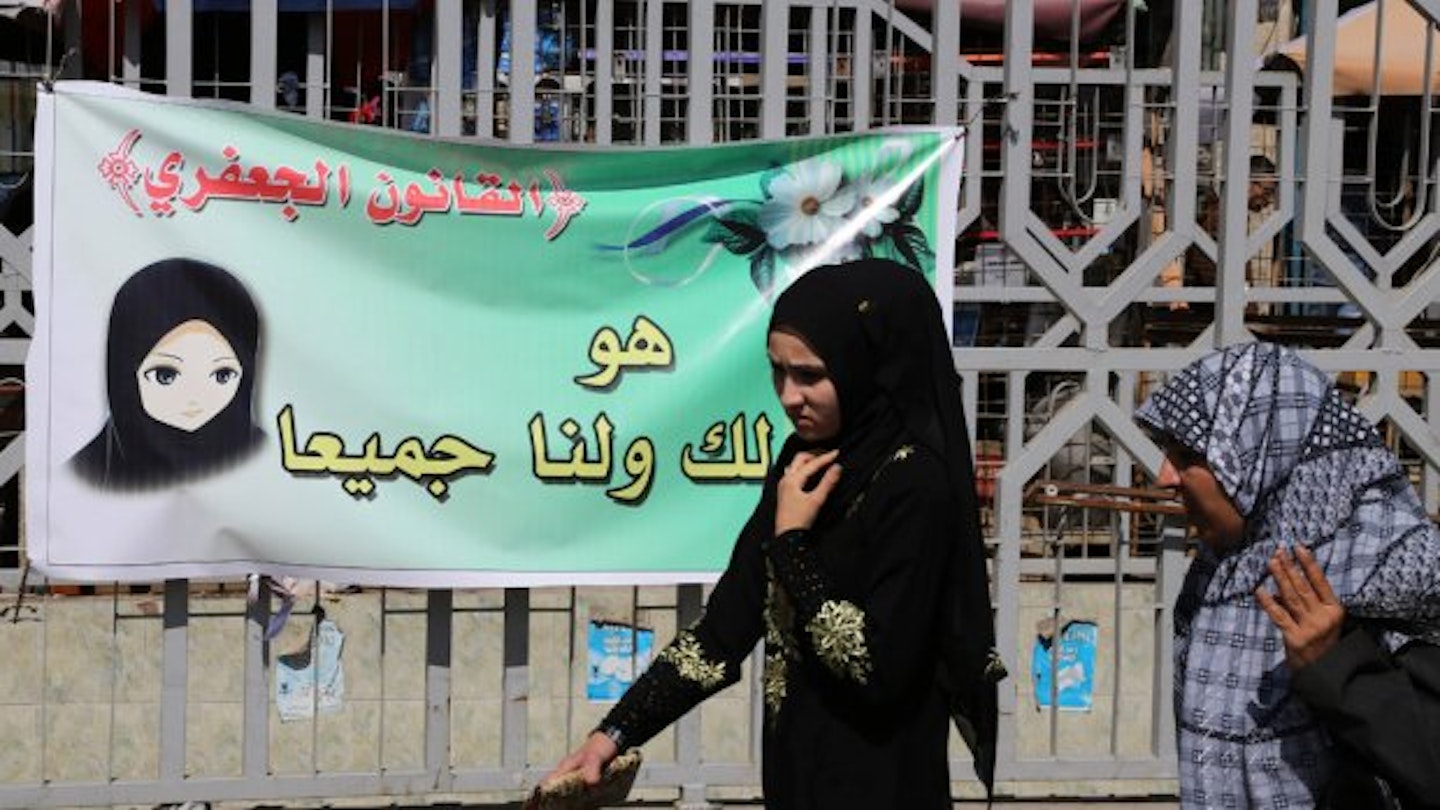A draft law is under consideration in Iraq that would make it legal for girls as young as nine to be married, and would require wives to submit to sex on their husband’s whim.
The current law allows Iraqi women to get married at 15 with their parent’s permission, and 18 without it - although it’s estimated that in 2011, 25 per cent of marriages in Iraq involved someone under the age of 18 - up from 15 per cent in 1997.
As it happens, the law doesn’t set a minimum age for marriage at all - however it does set rules for the divorce of girls who have reached nine years in the Islamic lunar calendar (eight months, eight years old by our calendar). Critics believe this is a backhanded way of allowing marriage of girls that young.
And just to make sure we’re really on board with the whole thing, the proposal can have sex with his wife regardless of her consent. The bill also prevents women from leaving the house without their husband's permission, would restrict women's rights in matters of parental custody after divorce and make it easier for men to take multiple wives.
‘That law represents a crime against humanity and childhood,’ prominent Iraqi human rights activist Hana Adwar told The Associated Press. ‘Married underage girls are subjected to physical and psychological suffering.’
The Jaafari Personal Status Law, as it’s known, is based on the principles of the Shiite school of religious law, and was introduced by Iraq’s defence minister, and has been approved by the cabinet - despite opposition from rights groups and activists. The measure is aimed at creating different laws for Iraq’s Shiite population.
The bill still has to be ratified by parliament before it becomes law, and it unlikely to do so before the parliamentary elections in April, but some analysts suspect the impending election is behind the proposal. ‘Some influential Shiite politicians have the impression that they should do their best to make any achievement that would end the injustice that had been done against the Shiites in the past,’ said Baghdad-based analyst Hadi Jalo.
Apart from the fact that it will have a hugely detrimental impact on women and girls in Iraq, experts fear the law will only cause further divisions in a country already troubled by sectarian violence.
Follow Rebecca on Twitter @rebecca_hol.
Picture: PA
This article originally appeared on The Debrief.
